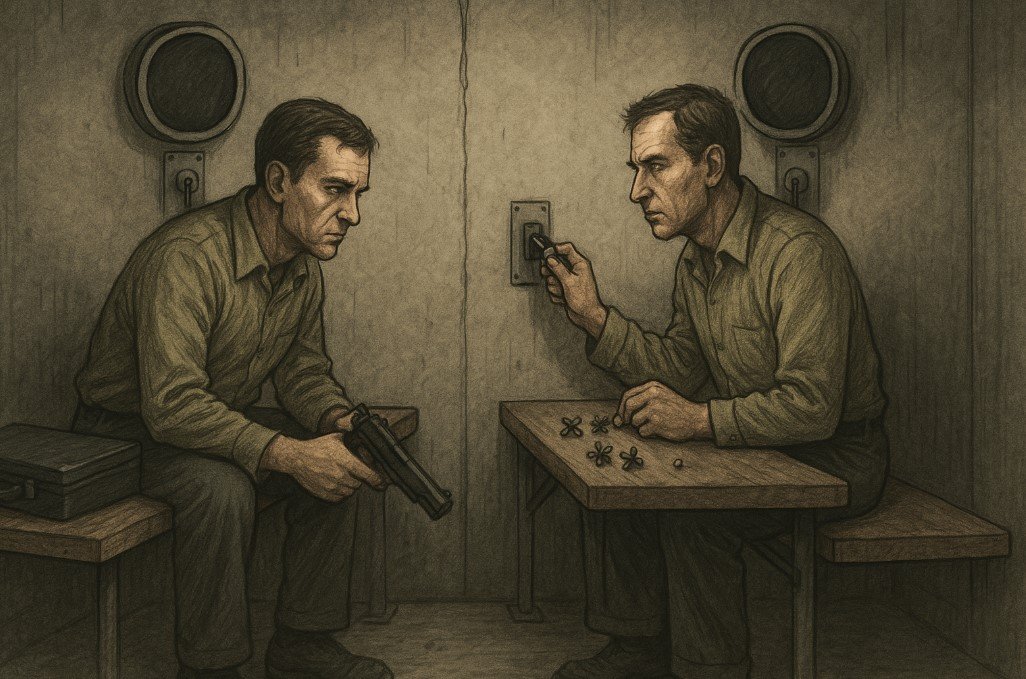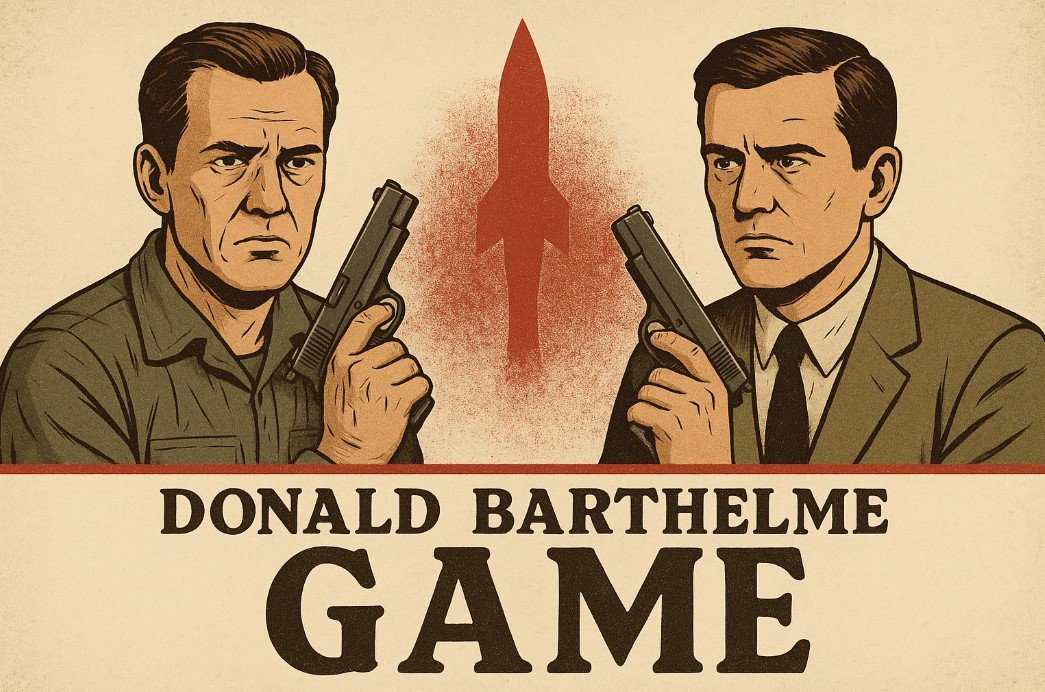Entertainment
Donald Barthelme’s Game: A Psychological Cold War Tale

Donald Barthelme’s short story Game was first published in The New Yorker in 1965. It has since become one of his most widely studied works, included in his collection Sixty Stories. The story is renowned for its unsettling atmosphere, minimalist setting, and profound psychological tension. It reflects the Cold War fears of the time and presents a close study of human behavior under pressure. Barthelme uses a simple but intense setup to explore themes like paranoia, isolation, control, and mental decline.
The plot of Game is simple on the surface. Two men are locked in an underground bunker. Their task is to wait for a signal and then each turn a key in a lock at the same time. This action will launch a missile, or “bird,” at a city that remains unnamed. The reason for the attack is unknown to them. They only know that both keys must be turned simultaneously. One man alone cannot complete the task.
The characters are the narrator and a man named Shotwell. They have been in the bunker for 133 days. The narrator believes this is due to an “oversight,” but also admits that he does not really know what the original plan was. The story never confirms whether they are actually meant to be in the bunker for that long or whether the whole situation is part of some larger experiment. This uncertainty is one of the key elements that adds to the tension of the story.
Each man has a .45 calibre gun, and they are instructed to shoot the other if one begins to behave strangely. However, we learn that the narrator also has a secret .38 in his attaché case, and Shotwell carries a hidden .25 calibre Beretta strapped to his leg. The presence of multiple weapons raises the stakes and shows how little trust exists between the two men. Their environment is one of surveillance and suspicion.

The longer they stay in the bunker, the more they begin to show signs of mental stress. Shotwell plays jacks, but he will not let the narrator join in. The narrator becomes obsessed with taking a turn at the game. He also begins writing descriptions of natural forms on the walls using a diamond, which was originally meant for a woman named Lucy. These small acts of rebellion show how they are both trying to hold on to their identities and their pasts. At the same time, the small power struggles—like Shotwell not letting the narrator play jacks—show how their relationship is breaking down.
The narrator repeatedly says that he is not well. He refuses to turn his key unless Shotwell allows him to play with the jacks. Shotwell, on the other hand, is focused on completing the task and seems frustrated by the narrator’s resistance. This clash adds another layer of tension. Neither man can accomplish the mission without the other, but they no longer trust each other.
The setting is also vague. They are somewhere beneath Utah, Montana, or Idaho. This lack of detail adds to the sense of confusion and detachment. The men do not even know where they are. All of this creates a feeling of being cut off from reality, a reflection of Cold War paranoia and the idea that individuals were often pawns in larger political games they could not understand.
Barthelme’s story is short—around 1,900 words—but every sentence adds to the claustrophobic and anxious mood. It is told from the first-person point of view, which helps readers feel the narrator’s uncertainty and mental strain. The reader is never certain whether the narrator’s statements can be trusted. His obsession with small things like the jacks and his unwillingness to turn the key suggest that he may be breaking down mentally.
The Game is often read as a commentary on the Cold War. The idea of two people with the power to launch a missile reflects the fear of nuclear war and the responsibility placed on individuals in such a situation. The instructions to shoot each other if either acts strangely also show how trust breaks down when people are put under extreme pressure.
The story ends without resolution. The signal never comes. The bird is never launched. The two men remain locked in their tense and meaningless standoff. This ending supports the idea that the Cold War was, in many ways, a psychological struggle as much as a political one.
In summary, Donald Barthelme’s Game is a powerful short story that explores how isolation and authority can affect human behavior. It takes a simple concept and turns it into a deep study of paranoia, trust, and mental stability. For those looking up “game bartell me a story,” this short fiction is a fascinating and chilling piece worth reading and reflecting on.
-

 Entertainment1 month ago
Entertainment1 month ago123Movies Alternatives: 13 Best Streaming Sites in 2026
-

 Entertainment2 months ago
Entertainment2 months ago13 Free FMovies Alternatives to Watch Movies Online in 2026
-

 Entertainment1 month ago
Entertainment1 month ago13 Flixtor Alternatives to Stream Free Movies [2026]
-

 Entertainment1 month ago
Entertainment1 month agoGoMovies is Down? Here are the 11 Best Alternatives






